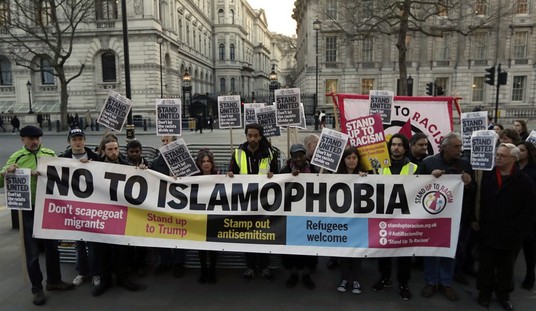DNC Chairman Tom Perez has been fairly quiet this summer, but with the arrival of the Democrats’ “virtual convention” this week he seized the opportunity to use his platform to address the party. In a rather curious choice of topics, Perez apparently decided to kick things off by ticking off his own voters in Iowa, Nevada and other states that still use caucuses for their primary elections when picking a presidential nominee. The Chairman declared in no uncertain terms that 2020 should be the last year that caucuses are held and all of the states should move to standard elections. But rather than focusing on the debacles we witnessed in this year’s contests, he cited the bitter fight between Bernie Sanders and Hillary Clinton in 2016 as his reason for calling for change. (Associated Press)
Democratic National Committee Chair Tom Perez said Monday that the handful of 2020 presidential caucuses should be the last the party ever holds.
He didn’t specifically name Iowa, which for decades has led off the nominating calendar, but his position would represent a seismic shift in the party’s traditions.
Perez’s term as chair will end before the 2024 nominating calendar is determined. But he told The Associated Press on the opening day of the Democratic National Convention that he plans to “use the bully pulpit as a former chair to make sure we continue the progress” of changes after the bitter 2016 primary fight between nominee Hillary Clinton and runner-up Bernie Sanders.
The number of states that hold caucuses has been mostly declining for a while, but the practice is far from being extinct. In addition to Iowa (probably the most famous caucus), twelve other states and three territories still hang onto the practice. While Perez will get no argument from me on this score, the states who do this seem to cling to their traditions fiercely. Any suggestion that they drag themselves out of the 19th century and just hold a normal vote is often looked at as some sort of grave insult.
So why bring it up just as the convention is kicking off? This is supposed to be the time when the party puts all the unpleasantness of the primary behind them and comes together behind the presumptive nominee and his or her running mate. Possibly because this is Perez’s last term as chairman so he doesn’t have to worry about pleasing everyone and building alliances anymore.
More curious, as I mentioned above, was Perez’s choice of the Bernie versus Hillary infighting from 2016 as his rationale. Was it really all that much different in 2020? You only need to substitute Biden’s name for Clinton’s and you saw the same scenario playing out. The Bernie Bros were never going to find any of the other leading contenders to be progressive/liberal enough for their tastes. And anyone seen as “blocking Bernie from the nomination” was only going to engender hard feelings. On top of that, what do caucuses have to do with the Democratic infighting? The bitter divisions were equally loud and clear in the states that held primary elections. It just doesn’t make any sense.
In the end, there really isn’t all that much the DNC can do about the states that choose to hold caucuses anyway. That’s a decision that’s made at the state level and the national party can’t simply veto them. They do have some options available to put pressure on them if they really feel moved to do so, however. Just as they already do with any states who move up their contests too early on the calendar, the party can dock noncompliant states some or all of their delegates at the convention. But that’s a pretty drastic move and tends to leave some severely bad blood between the state and national parties. And that sort of internecine scrapping can impact fundraising in both directions, so I rather doubt the DNC will try to take too hard of a line on this.
That’s kind of a shame because there are definitely a lot of issues with the caucus process. It removes the anonymity of voting, leaving voters open to peer pressure. There are also frequent transparency issues in terms of how the votes are counted and reported. And we don’t need to revisit how badly they can go when any step in the process breaks down, as we saw in Iowa this year. But for better or worse, we seem to be stuck with them for the foreseeable future.








Join the conversation as a VIP Member